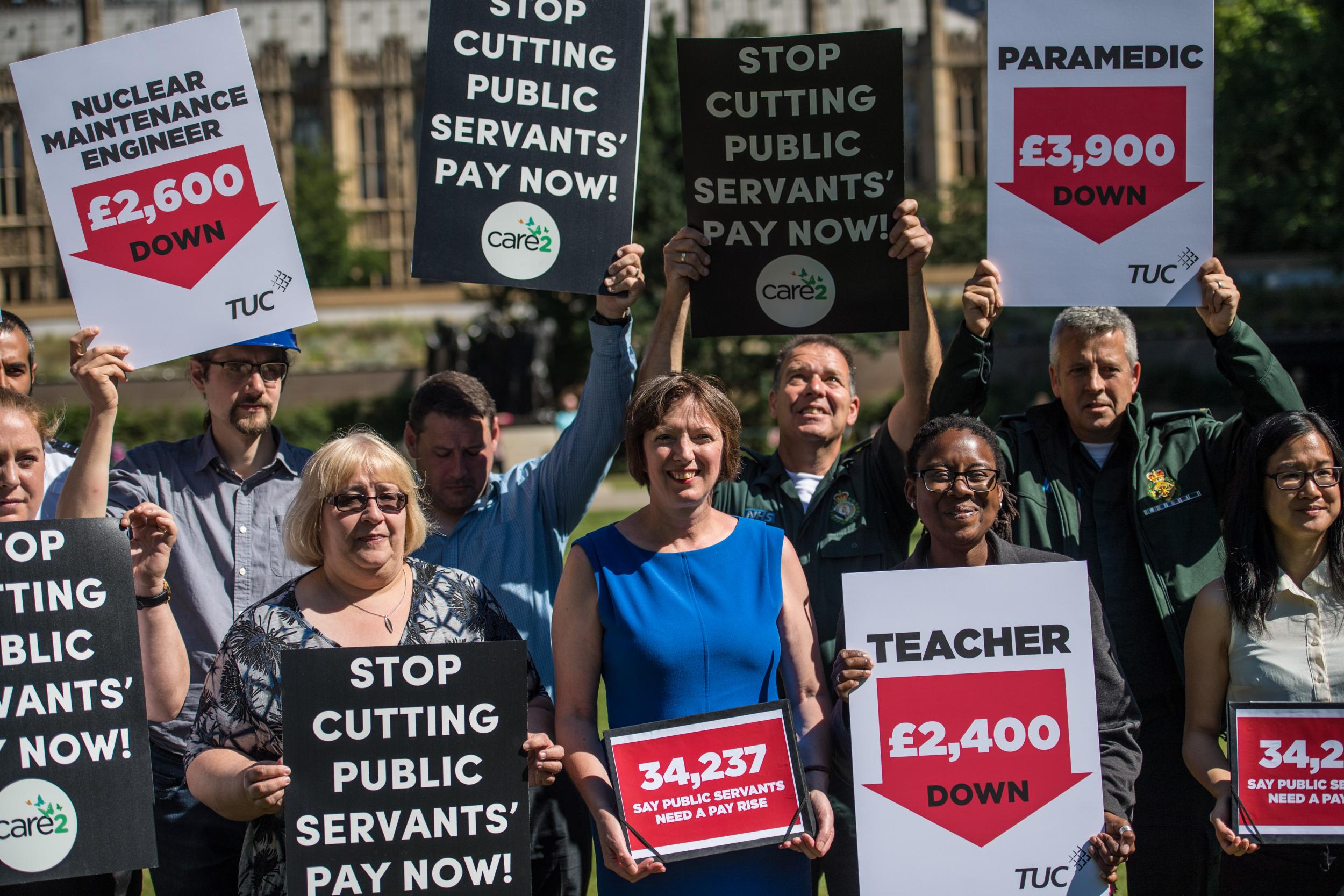Public sector support staff 'working 40 million hours of unpaid overtime a year'
Two out of five support staff working in NHS, education, local government, police and other public services working unpaid overtime most weeks, finds report

Your support helps us to tell the story
From reproductive rights to climate change to Big Tech, The Independent is on the ground when the story is developing. Whether it's investigating the financials of Elon Musk's pro-Trump PAC or producing our latest documentary, 'The A Word', which shines a light on the American women fighting for reproductive rights, we know how important it is to parse out the facts from the messaging.
At such a critical moment in US history, we need reporters on the ground. Your donation allows us to keep sending journalists to speak to both sides of the story.
The Independent is trusted by Americans across the entire political spectrum. And unlike many other quality news outlets, we choose not to lock Americans out of our reporting and analysis with paywalls. We believe quality journalism should be available to everyone, paid for by those who can afford it.
Your support makes all the difference.Public sector support staff are doing more than 40 million hours of unpaid overtime a year as workers face "intolerable" pressures due to cutbacks, new research shows.
A report by Unison suggests two out of five teaching assistants, hospital porters, police community support offers and other public service staff members are working unpaid overtime most weeks.
An analysis of labour force statistics included in the report shows the unpaid hours worked equate to 25,000 extra public service staff working full time.
A separate survey of almost 1,000 support staff working in the NHS, education, local government, police and other areas found that four out of five were working harder than a year ago, but a third believed they were much less productive because of cutbacks.
Staff feel demoralised and demotivated as a result of austerity because of increased workloads, having to do jobs they are unfamiliar with and because their managers are unsupportive, according to the findings.
Some said they were taking on work of colleagues who had been made redundant and were working beyond their pay grade.
Unison said its study showed the impact of years of job cuts, which had led to “intolerable pressures” across the public sector, with morale at “rock bottom”.
General secretary Dave Prentis said: “Support staff such as healthcare assistants and catering workers are among the lowest paid in public services. All too often they're overlooked by politicians, despite the vital jobs they do.
”It's no wonder they feel overworked and undervalued. Many are facing intolerable pressures because of cutbacks, which have triggered staff shortages.
“The government must commit to funding the jobs needed to guarantee safe, high quality services. A failure to act will undermine standards further and weaken public confidence further still.”
It comes after The Independent revealed that the number of public sector workers relying on charity handouts to make ends meet has soared since 2010 as stagnating wages fail to match the rise in living costs.
Years of wage freezes and pay rises below inflation for public sector workers mean nurses’ pay has dropped by 14 per cent in real terms, while teachers’ wages in England were worth 12 per cent less in 2015 than they were in 2005.
Police constables’ average basic pay has also been reduced by approximately 12 per cent in real terms since 2010 as a result of changes to pay coupled with inflation rates.
In July, the government announced that teachers, prison officers, members of the armed forces, doctors and dentists would to be handed rises of between 1 and 3.5 per cent, backdated to last April.
The move was welcomed by many but it sparked fears of further cuts to services, as the Treasury is not expected to fund the cost, forcing individual departments to find the cash from within existing budgets, warning of fresh cuts to services and jobs.
Join our commenting forum
Join thought-provoking conversations, follow other Independent readers and see their replies
Comments